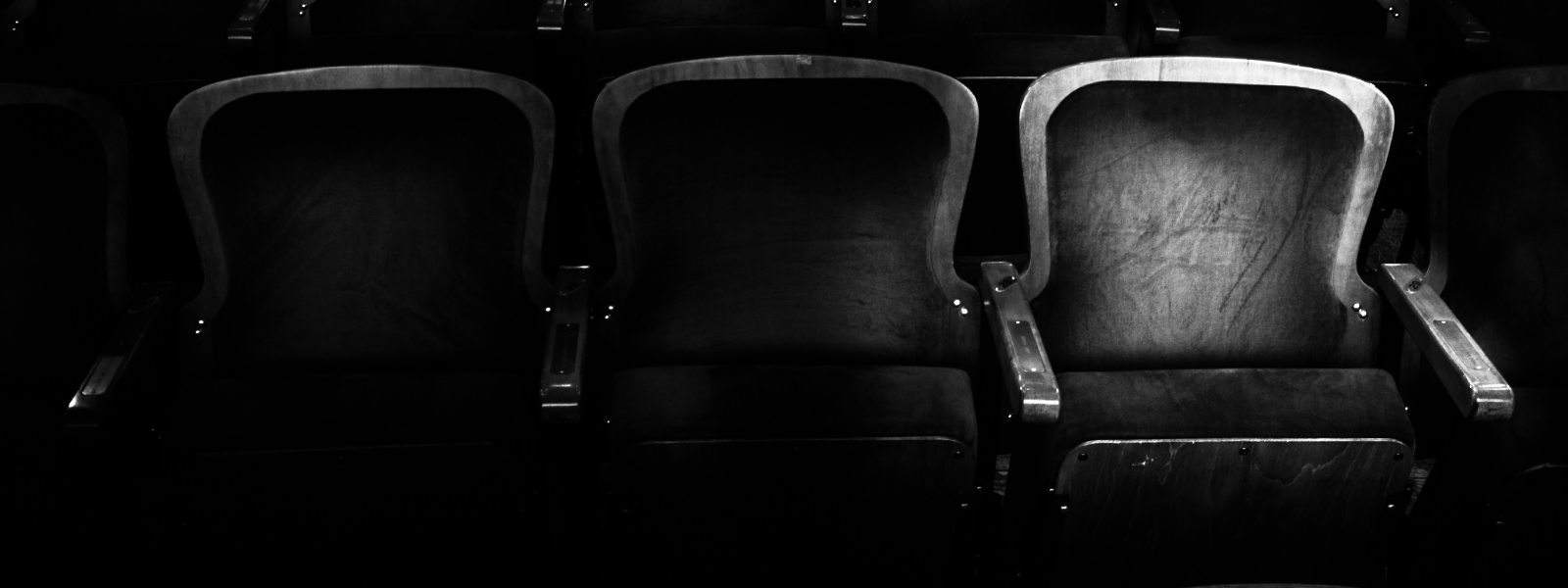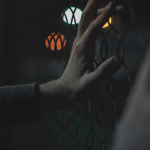She’s spotted three empty seats in an array of five-by-five. The first two rows only have empty middle seats with couples on the edges. Couples not as in romantically-coupled, just two people who came together. Couplets. Maybe a friend accompanying another friend? The back three have only singlets with gaps of three consecutive seats. There’s no point in being sandwiched by couplets. Who picks the single empty seat of a full row unless it’s the only spot left?
So there’s singlets and couplets. Singlets are attracted to clumps of three empties, and couplets pick corners. The only problem is that the singlets are only truly singlet spins when they’re couplets. Even then, technically they’re triplet spins because they face the same direction. How fun, she thinks. And then she puts away the waiting room quantum triplets into a corner of her mind like a little pocket book she’ll never return to, and that is the real problem.
“Al-ee. Mrs. Ali.” She has been called for already. What are all these people waiting for if not for their name to be called?
“Mrs. Ali? We can see you now.” Oh so there isn’t time. She stands up in her singlet/triplet state, making sure things don’t run along without her, trundling along behind the lady with the clipboard calling with a clipped voice. The lady looks past her and says, “We’d prefer it if you’d wait here.” Who is the lady talking to? Oh, never mind. Anyway, now she is trying to trundle along, clips and all. One loose clip falls to the ground and she’ll never notice that it’s gone until a part of her hairdo comes undone and then so will she, out of sheer befuddlement.
“Would you mind changing?” the lady asks. “I’ll give you a moment, but can I take your purse? You can have it back when you’re done. Oh, don’t worry. We’re just to put it in a little locker, with your name on it, that’s all.”
Had she worried? She smiles nervously, forgetting if she’d made a noise before the “Oh.” If she had, she’d like to take it back so the “Oh” never happens because she’s not that worried. It’s just disconcerting when the things you’ve walked in with have to come off, all of them. Not a problem per se. “Sure,” she musters, because if she had made a sound earlier she’d like to have it revoked, in effect at least. The lady smiles warmly, takes her belongings, almost all of them, not just the purse. First the coat, and later, all her clothes.
What they’ve given her to wear isn’t so bad actually, it’s quite becoming if you smooth it down. There’s a small mirror. Not too small. It’s long, but it’s tucked away in the corner of the room, conspicuously and inconspicuously. You’re meant to find it if you want it, but it’s still in a corner and though it’s long it’s also narrow which makes it pretty small in sum. The sum total of its sides doesn’t amount to much, its just distortion in perspective with the room which is really, well, it’s three-dimensional, so how can one compare? It’s just internal computation. Anyway, well, alright, the fabric is not all bad. It smells nice and it fits well. She supposes this is what she’s come for after all.
She sits and waits for a few minutes for the lady to come back in but it seems like a bit longer. Her watch was one of the things she took off. A lovely watch, it wouldn’t have been any trouble at all, but she had supposed ‘all’ really meant ‘all’ and so she’d removed it all. It sat there on a table above her shoes. What if ‘all’ didn’t actually mean ‘all’? What if it meant: ‘Please, we know you’re here and we’ve asked you to remove all your clothes but we assumed you’d understand, for the sake of propriety, we really didn’t mean all, and definitely not your watch!’ She looks over at it anxiously, she can even see the big hand moving. Her eyesight’s still quite good, it’s not rheumy just yet. There’s a lovely turn of phrase—rheumy. She’d never said it out loud but if she had it would sound like she was describing the room which was definitely not rheumy. It was claustrophobic, and the walls were quite formidable. If she’d decorated, she’d have liked to fill the walls up but she hadn’t so there was just one tiny diagrammed poster on the wall; the rest was all empty. Now that she thought about it, it made her sick. She’s about to be sick, but the floor seems so far, maybe she should just wait.
The door flings open but it isn’t the nurse. It’s two gentlemen, one stranger and one vaguely familiar, and neither is dressed the way she had supposed. Quite the opposite. The familiar one—from the waiting room?—is wearing a familiar sweater; the sort of thing you’d wear if you were in the singlet state with a spin of zero because true couples—those made in heaven—must have real spin zeroes. Of course she’d always thought that but who really knew? She’d spent an eternity teaching quantum mechanics and nobody knows what metaphors she’s spun out of all those repeated equations. But that’s all gone now. Her words, gone. Her familiarity with the man too, gone.
“Mrs. Ali, do you know why you’re here?”
It was not the right question at the right time for she’d finally found that she was missing a clip, and so she was trapped—part because it was a confusing question and part because half of her was crumbling for all to see—only to let out sounds to indicate she needed a few more seconds, just a few moments. But for some reason they didn’t wait, even though people always had before. The strange men close in, terrifying her.
…
Biography
Kamil Ahsan is a doctoral student in Developmental Biology and History at the University of Chicago. He is a journalist, essayist and fiction writer whose work has appeared or is forthcoming in Dissent, The Millions, The Chicago Review, The American Prospect, Salon, Aeon, Jacobin, The Rumpus, and Entropy, among others. Website: kamilahsan.com Twitter: @kamuleosaurus
Image: Peter Lewicki





